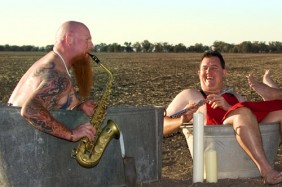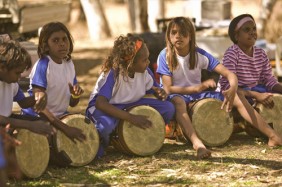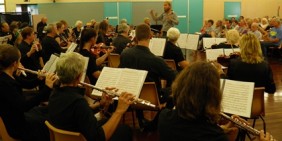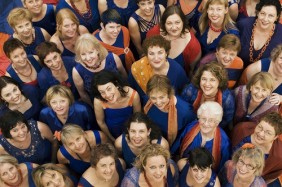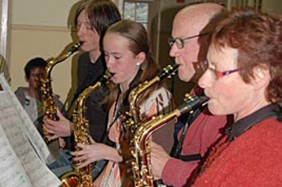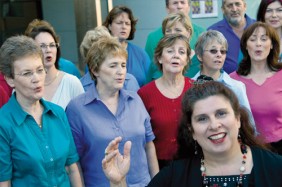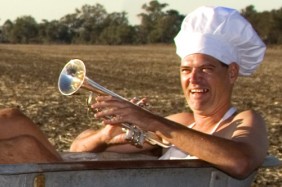
Community Music Online
How do you deal with all of the online tools available to you - websites, blogs, Facebook, Twitter, email lists, and everything else at our disposal. It seems that community music groups in Australia cover the entire spectrum from "We have no idea how to deal it", through to "We'd like to but don't know how" and then "We're pretty comfortable with running an up-to-date web presence with integrated website, social media and e-newsletter". in this blog post we cover where to find help and a quick guide to social media.
Where to find help
1. We're here to help. The Music in Communities Network is developing a Community Music Online scheme, to help community music groups and organisations get online and navigate the possibilities online. This includes articles, workshops, and a dedicated page on our site for Organisational Members (for those that want it).
2. Look for someone in your group, circle of friends, relatives or colleagues with some experience. These days there are many ordinary people with moderate to advanced knowledge of websites, online tools and social media. Look around for some in your community who can help.
3. Online articles. Each week there are countless articles about online tools and marketing, particularly (in the music sector) for contemporary groups wanting to raise their profile through social media. Learn what you can from them. The MCA's Music Career wiki has a portal to articles about Social Media and Marketing & Promotion, for a start.
Quick Guide to Social Media
'"In essence, social media and the performing arts share a number of common practices: collaboration, creative expression and participation. Similarly, both satisfy a common need: the desire for community. They do this by facilitating communication, self-appraisal and shared imagining through participation. In this sense the performing arts themselves may be seen as forms of social media and, as such, be seen to have as yet untapped potential to lead innovation by making use of digital social media to foster stronger and more reciprocal engagement with the wider community."
- Robert Reid, in ''Hello World! Promoting the Arts on the Web" ([http://www.currencyhouse.org.au/node/185 Platform Papers No.27, April 2011])
An article I read recently - "7 Steps to Draw Up a Social Media Game Plan" - begins with this:
Is your website current? Do you have an email system? If not, go no further with social media.
That's probably good advice for community groups too. However, a basic Social Media presence for your group may not take long and can provide an easy platform to connect with your members and supporters, for free, without much fuss.
 FACEBOOK
FACEBOOK
Most people have a profile on Facebook, and those that don't would at least be aware of its overwhelming impact on online communication over the past few years. . In December 2011, ,Facebook had an estimates 11,200,000 Unique Australian Visitors (see table) - that's about half of the population! 60% of MiCN's Organisational Members have a Facebook presence, 43% with a Page and 17 with a Group. Pages are a great platform for an organisation or group to share information, have multiple people administering it, setting up events, The Music in Communities Network uses a Page, as does the Music Council of Australia.
 The micro-blogging platform is addictive for some, baffling or annoying for others. 10% of our members have a Twitter profile, and in December 2011 there were 1,800,000 Unique Australian Visitors. Without going into a lot of detail, here are a few little pieces of Twitter advice:
The micro-blogging platform is addictive for some, baffling or annoying for others. 10% of our members have a Twitter profile, and in December 2011 there were 1,800,000 Unique Australian Visitors. Without going into a lot of detail, here are a few little pieces of Twitter advice:
1. Don't get into Twitter just because you feel like you have to, or because you think "everybody else is doing it". Not everybody is doing it, and you don't have to be involved. For those that like the platform and use it regularly, it can be a good social media platform. A profile without up-to-date content and no followers is probably less useful than none at all.
2. If you're going to try Twitter for your group or organisation, you may as well like using it yourself. If you enjoy using Twitter to keep up with news, people's opinions, events, and everything else that Twitter has to offer, it will be easy for you to add the occasional update for your group. If you don't like the platform or never use it, you might find that it's a hard slog to keep up with it for your group.
3. If you have a smart phone (iPhone, Android or similar) or tablet you may find twitter easier to follow on one of the various apps, such as Hootsuite or Tweetdeck.
YOUTUBE
 11 million Unique Australian Visitors used YouTube in December 2011, which according to Social Media News recorded the highest level of growth last year. We found that 15% of our members have a YouTube profile of some description, and a number of others have videos uploaded of their performances.
11 million Unique Australian Visitors used YouTube in December 2011, which according to Social Media News recorded the highest level of growth last year. We found that 15% of our members have a YouTube profile of some description, and a number of others have videos uploaded of their performances.
Not everyone that views YouTube videos has a profile on YouTube. If you do have a profile you can create a playlist of other people's videos (like us), and upload your own content. If you're realling interested in YouTube have a look at the YouTube Playbook.
WHAT ELSE?
The list of Social Media tools is endless - Google+, Tumblr, Blogger, Delicious, LinkedIn, Myspace, Flickr, Digg, Pinterest and many more. We'll stick to the ones listed above for now, a) because they're among the biggest, and b) because they seem to be most useful for community music groups.
By the way, don't forget to join us on Facebook, Twitter and YouTube!
Written by Alex Masso for the Music in Communities Network, February 2012






